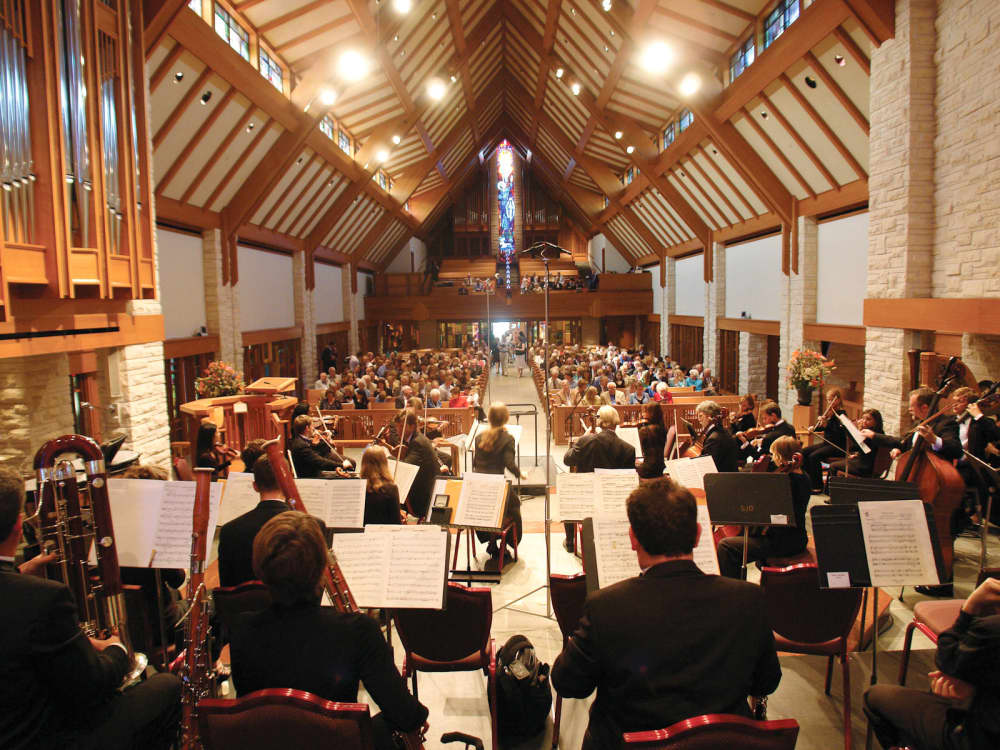The other side
KTRU's a victim of its own mediocrity: Houston benefits from this radio shuffle
 A chance to hear Terry Gross on Fresh Air on weekdays...
A chance to hear Terry Gross on Fresh Air on weekdays... and a real outlet for classical music ...Photo by David Brown
and a real outlet for classical music ...Photo by David Brown more than outweighs the loss of KTRU's out-there sound.
more than outweighs the loss of KTRU's out-there sound.
The Rice student community and influential indie kids emitted a collective groan at the news that the University of Houston is buying Rice college radio station, KTRU.
Houston is losing its only platform for experimental, independent music — undoubtedly a tragedy. But speaking as an alum of UH and just a few days past the age when a valid pick-up line was, "Let's burn one down and listen to KTRU," I have to admit how excited I am about the radio shuffle.
With its previous broadcast hours, KUHF was terribly limited with its news programming. National Public Radio produces a stimulating lineup that was unavailable, many of which offer criticism of current affairs that has had no outlet in Houston. For those of us who have had the pleasure of tapping into the HD station, we've been enlightened by Diane Rehm's public affairs broadcasts featuring illustrious luminaries, and Terry Gross' interviews with cultural movers and shakers on Fresh Air.
By offering a 24-hour radio news service, Houston is joining the ranks of other high-profile metropolises with full-time NPR programming. KUHF has already clarified that the station will increase Houston-centered content on key topics and will sponsor and broadcast town-hall forums on issues of community concern. The idealist in me sees a future city in which political and cultural issues become part of daily conversation at a depth that was not previously possible. Houston has an appetite for more than a couple of news hours during the morning and evening commutes.
Let's be honest — the non-news programming on KUHF brought on many a yawn.
How many times have I made the mistake of tuning in after the 7 p.m. broadcast to find The Magic Flute playing again? Regardless of one's taste for classical music, it's been several years since the city has had a station dedicated to that genre — so why not separate the two audiences?
The nascent KUHC is poised to revitalize interest in classical music in the city with more in-studio live performances, live remote broadcasts and full-length concert broadcasts of local performers. Now, classical music appreciation won't be a rarified pursuit limited to those with season tickets to the Houston Symphony.
This is a positive move for UH in what is sure to be its long quest to top-tier status. It will be the first Texas university to operate two public radio stations, and as chancellor Renu Khator pointed out in a written statement, this move will help fulfill the university's responsibility to the city by promoting both its arts community and expanding access to news and information.
For those of us, like myself, who are regular listeners of 91.7 FM, we can still enjoy the station's programming on its website, ktru.org. With a growing number of cars and Internet-enabled phones able to access the website's broadcast, the station will only grow in its accessibility. Considering KTRU's tech-savvy audience, I can't imagine a loss in listeners.
To a certain extent, KTRU's analog broadcast fell victim to its own mediocrity. The programing was consistently spotty — enough so to detract the true experimental music lover who could easily find superior programming online. Houston deserves one (if not several) top-notch college-radio-style outlets.
The loss of 91.7 as Houston's only outlet for underground sound is a blow to the city's cultural landscape, especially if Rice wants to remain appealing to undergrads and the city aims to attract creative young professionals.
But villainizing Rice administrators for selling the station or UH for expanding its reach won't accomplish anything — so why not ask the noncommittally quirky St. Thomas to launch its own radio station? Or I'm sure the kids at Baylor College of Medicine are really attuned to the science of hipster music.
